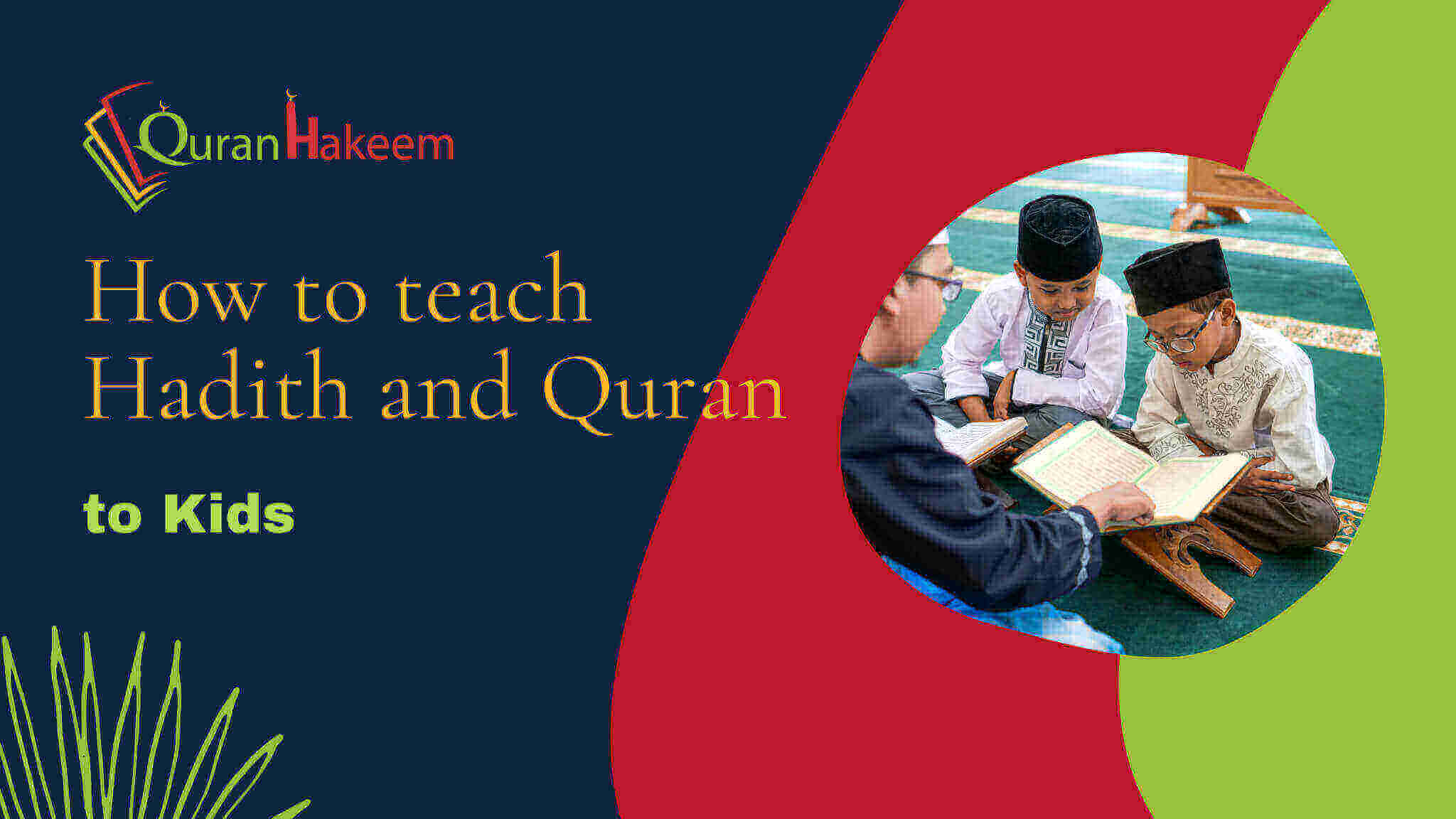How to teach Hadith and Quran to kids

In the Islamic faith, there are a number of sacred texts that are central to the religion. One such text is the Quran, and another is the Hadith. Both of these texts contain teachings that are meant to be applied in daily life. In this blog post, we will explore some key teachings from Quran and Hadith for kids. From eating habits to morality, learn about some of the most important lessons that these texts offer and shows why? Teach Hadith and Quran to kids.
Quran’s teachings for kids
The Quran is a collection of teachings from God that Muslims believe to be the word of God. It is divided into chapters, and each chapter has a specific theme. Some of the themes covered in the Quran include faith, repentance, charity, fate, and judge between people.
One of the most important teachings in the Quran for kids is faith. Kids need to have faith in order to follow the commands in the Quran. If they don’t have faith, they may not be able to live by those commands.
Charity is also an important teaching in the Quran. Charity helps people who are less fortunate than you. You can donate money or goods to charity organizations or give food to homeless people.
Fate is another important topic covered in the Quran. Fate is what happens because of your actions and thoughts today. If you do good things today, your fate will be good tomorrow. If you do bad things today, your fate will be bad tomorrow.
Another teaching in the Quran for kids is to judge between people fairly. You should always try to see things from other people’s perspectives before making decisions about them.
Hadith teachings for kids
When it comes to teaching children about the Islamic faith, one of the most important things parents can do is introduce them to authentic Islamic teachings.
One of the most commonly cited hadith teachings for kids is that Allah is always watching them. This teaches children to be mindful of their every action and to respect others, no matter what they may do.
Another important hadith teaching for kids is that Allah loves all people equally. This teaches children that everyone has a place in Allah’s love and care, regardless of their background or status in life.
If your child enjoys learning about Islam, consider incorporating some of these teachings into your home curriculum. They will not only learn more about Islam but also develop a strong foundation on which to grow in their faith later on.
Why Teach Hadith and Quran to kids?
Islam is the largest and youngest of the monotheistic Abrahamic religions. The Quran, the holy book of Islam, is considered by Muslims to be the verbatim word of God as revealed to Muhammad through the angel Gabriel. Muslims believe that every detail in the Quran was revealed to Muhammad at once, without any gaps or errors. The Hadith (another name for traditions) are a set of reports about the life and teachings of Muhammad, compiled by his companions after his death. Hadith teaches specific aspects of Islamic theology and practice.
The importance of Quran and Hadith teachings for kids cannot be overstated. These teachings provide children with a strong foundation on which they can build their faith in Islam. They also help children understand Islamic beliefs and practices in an easily digestible way. Children learn best when they are able to relate what they are learning to their everyday lives. That is why we focus so much on having Quranic and Hadith lessons integrated into our curriculum throughout our school year. This way, your child will not only learn about Islamic principles but also develop lifelong skills that will serve them well both now and into adulthood!
Telling Stories
Parents should narrate the interesting stories of the Messengers of Allah and their companions to their children so that they can develop a passion for learning the Quran and hadith.
Teaching small Surah and Hadiths
Another important way is that we should memorize small Surahs of Holy Quran and also Hadiths which are related to our daily life.
-Make it interactive: Use props and puppets to help bring the stories to life. Get the kids involved by having them act out scenes or role-play characters.
-Keep it engaging: Use humor and other creative techniques to keep the kids engaged.
-Make it memorable: Repeat key phrases and concepts throughout the lesson. Use visual aids, such as pictures and charts, to help drive home the point.
In the same way, you can make children compete with each other so that they remember these things well at their young age and these things will be useful in their practical life.
Start Learning Quran Today!
So what are you waiting for? Let’s get started with your Quran Learning journey. Give a try to our trial class by booking a one-on-one meeting at the time of your convenience with our expert tutors.